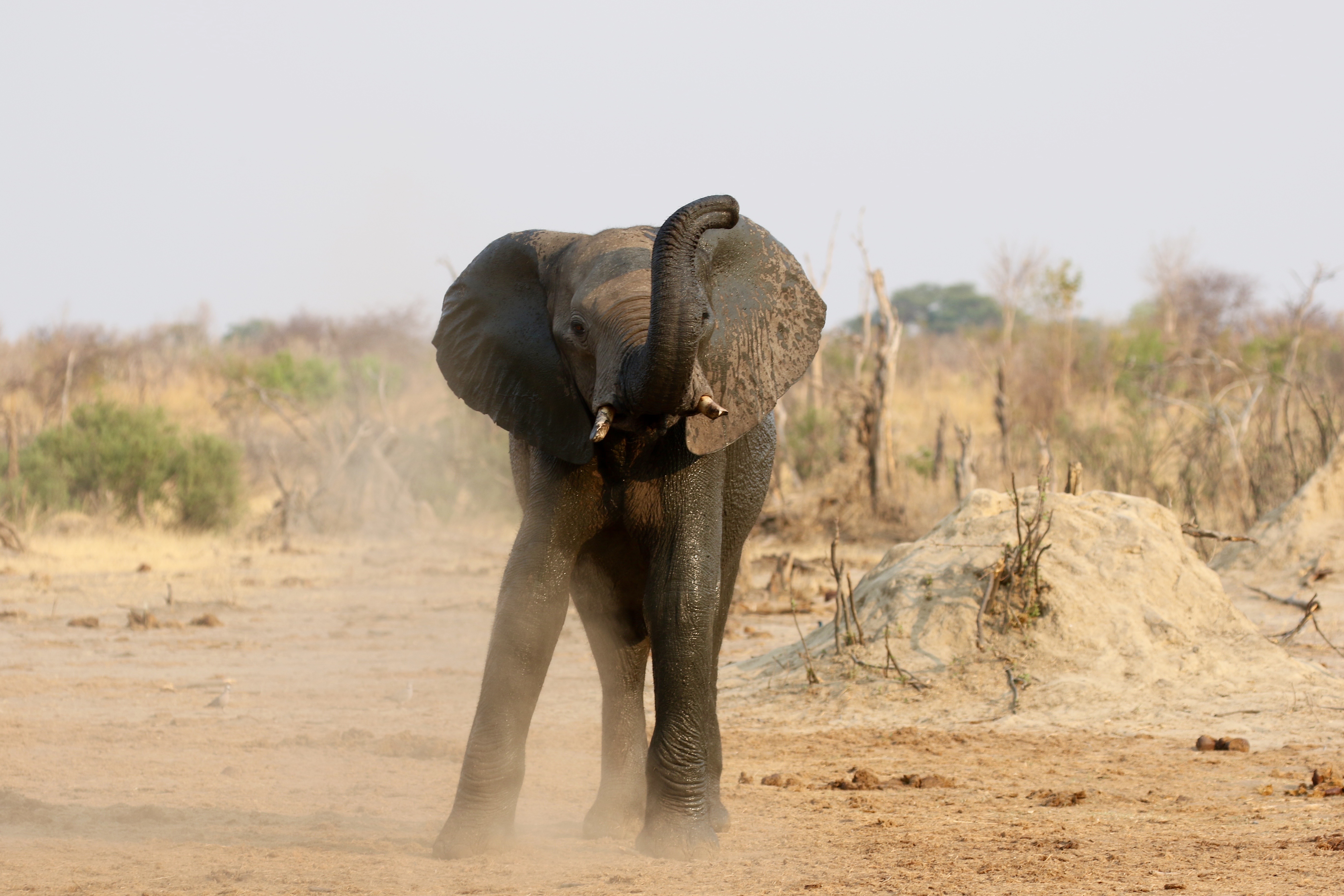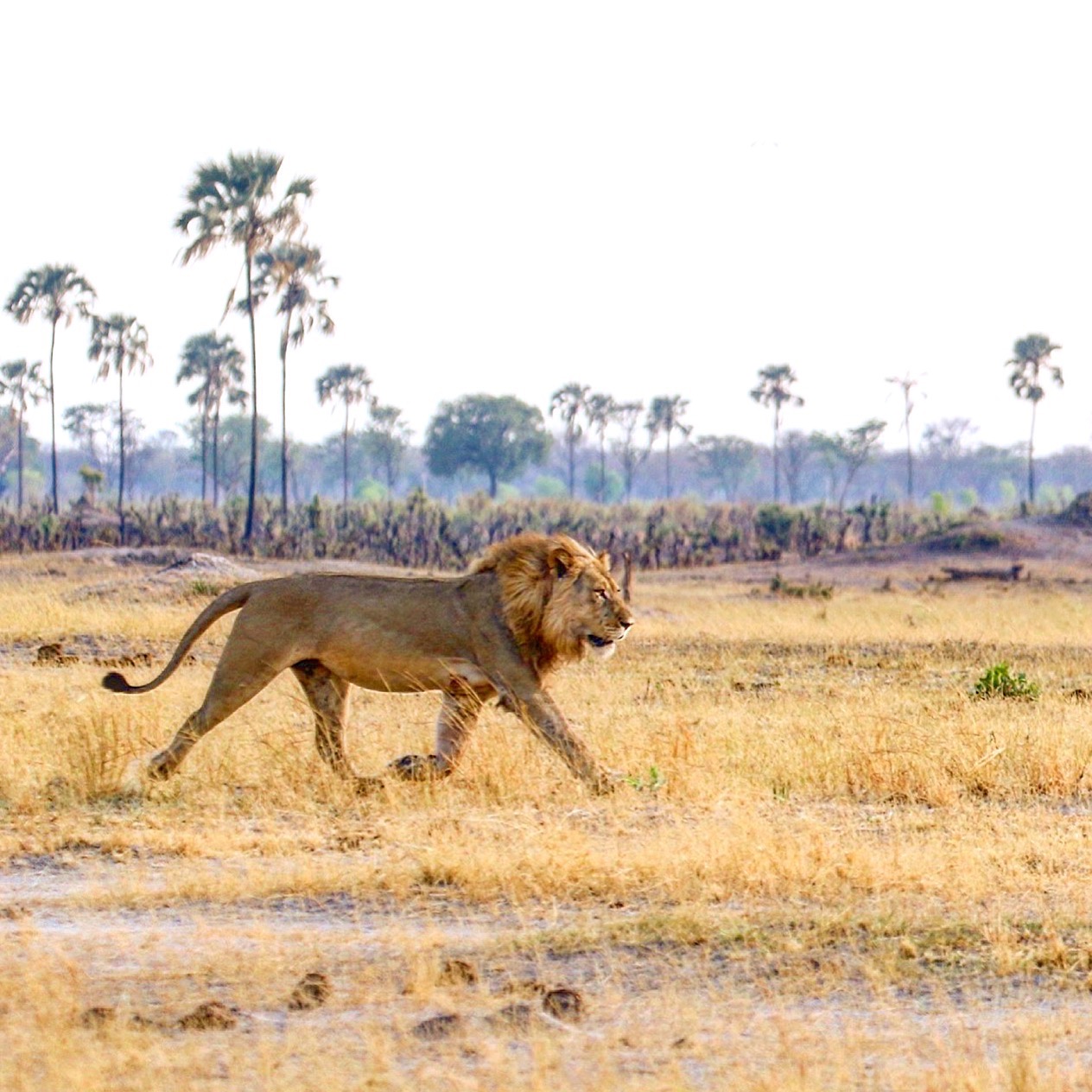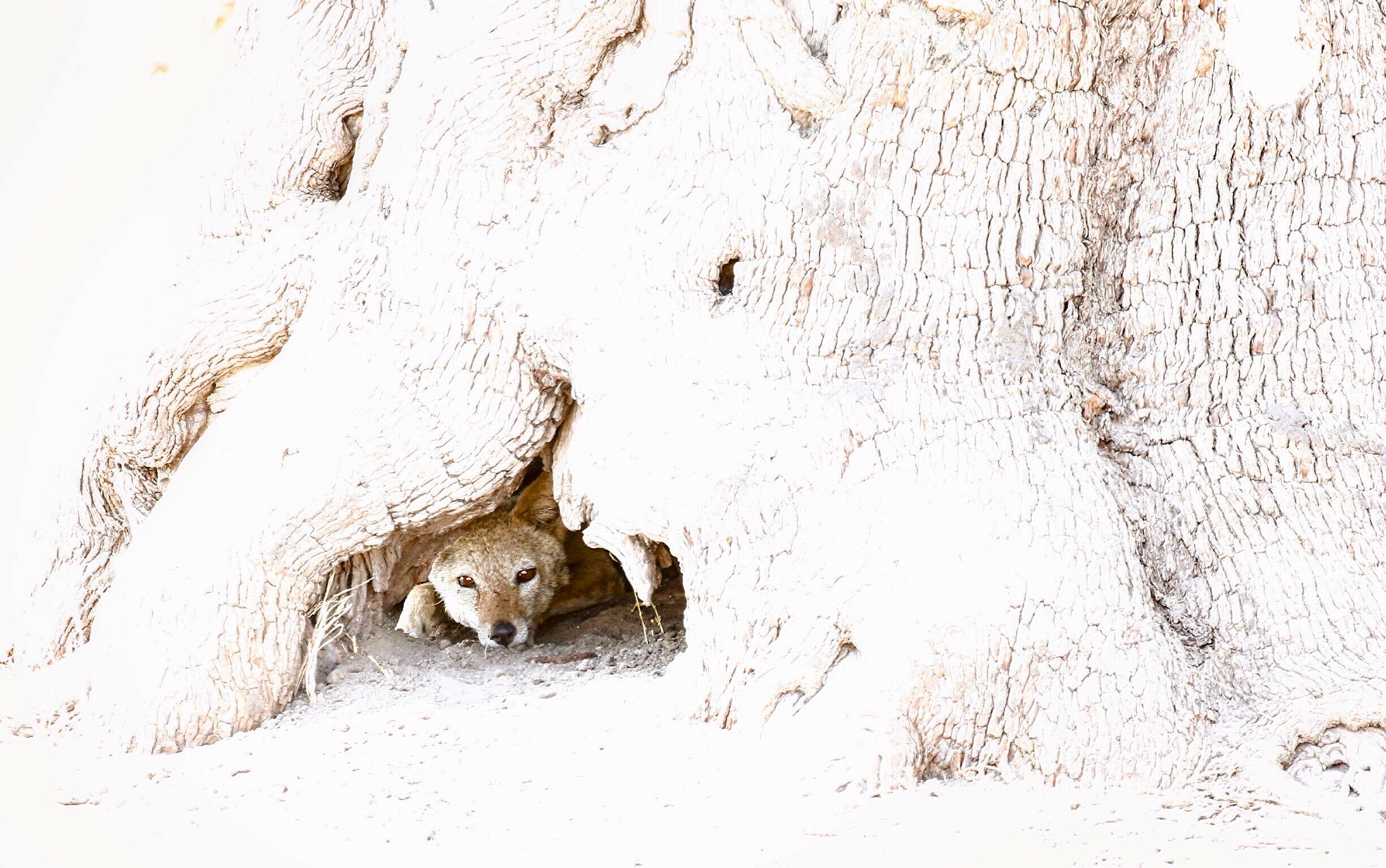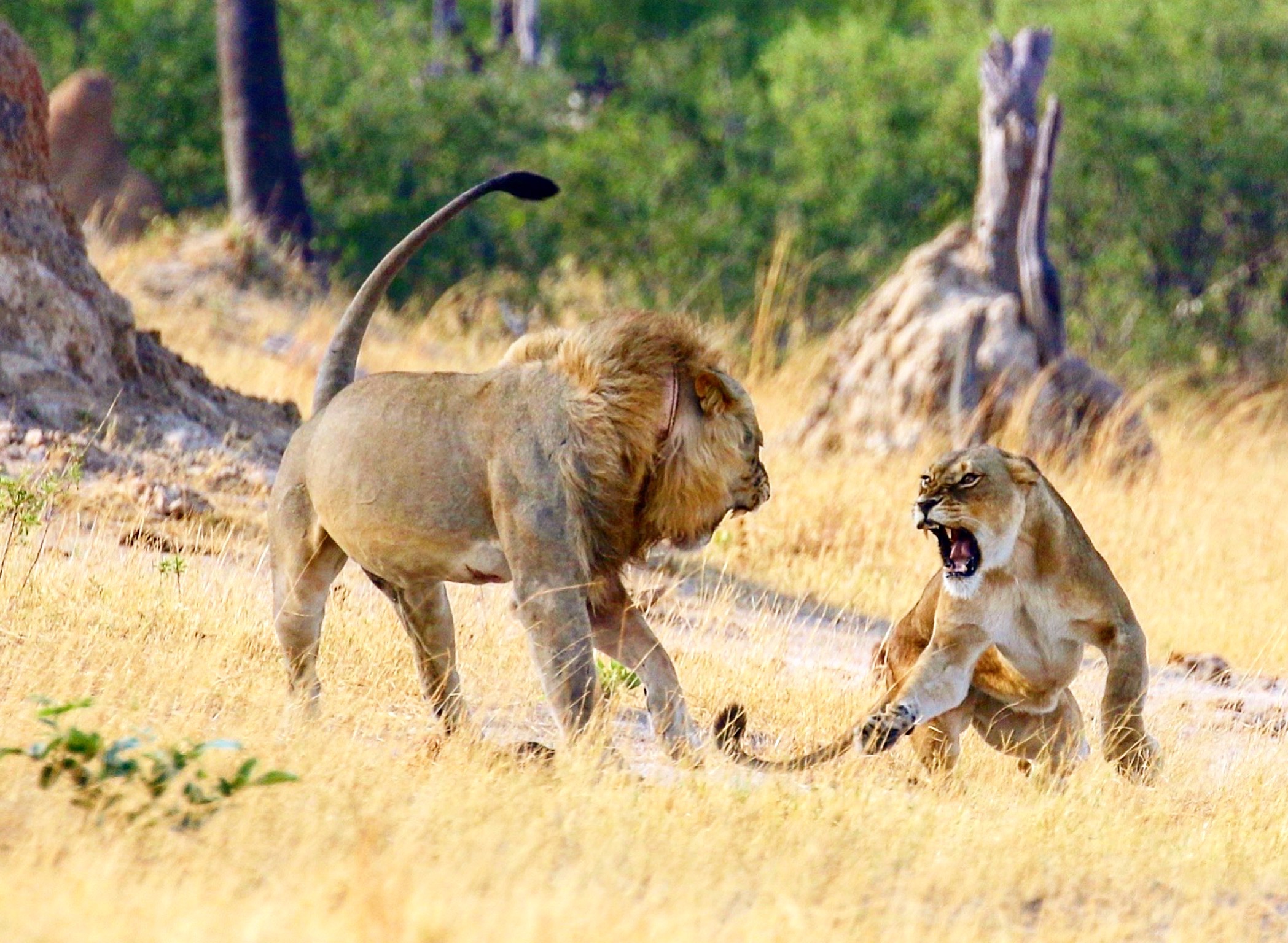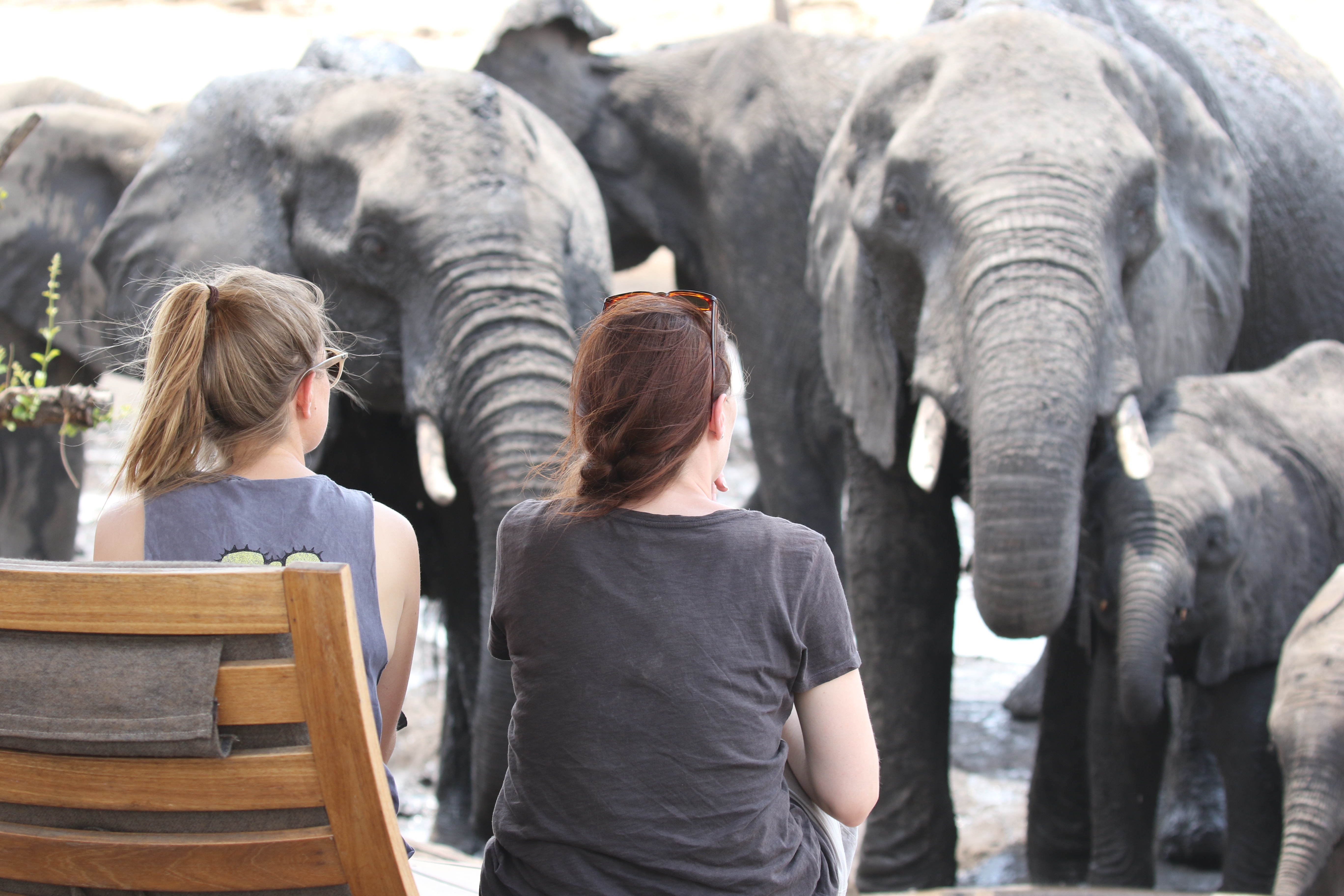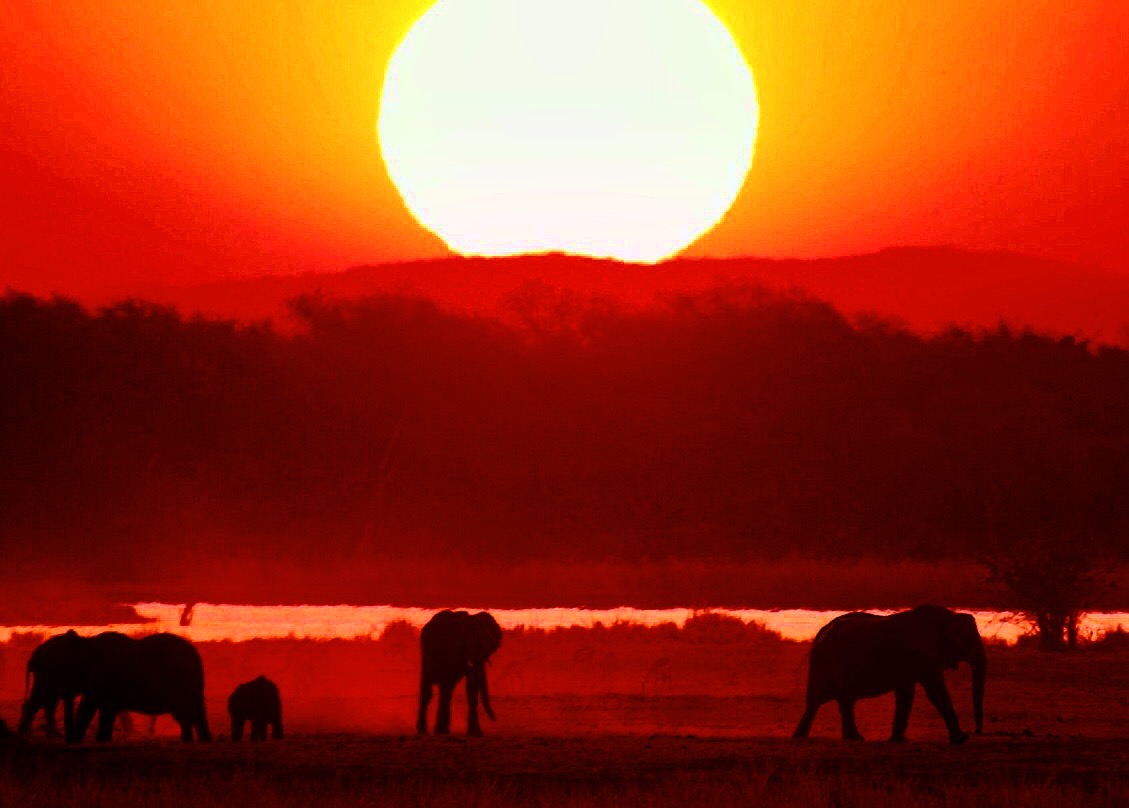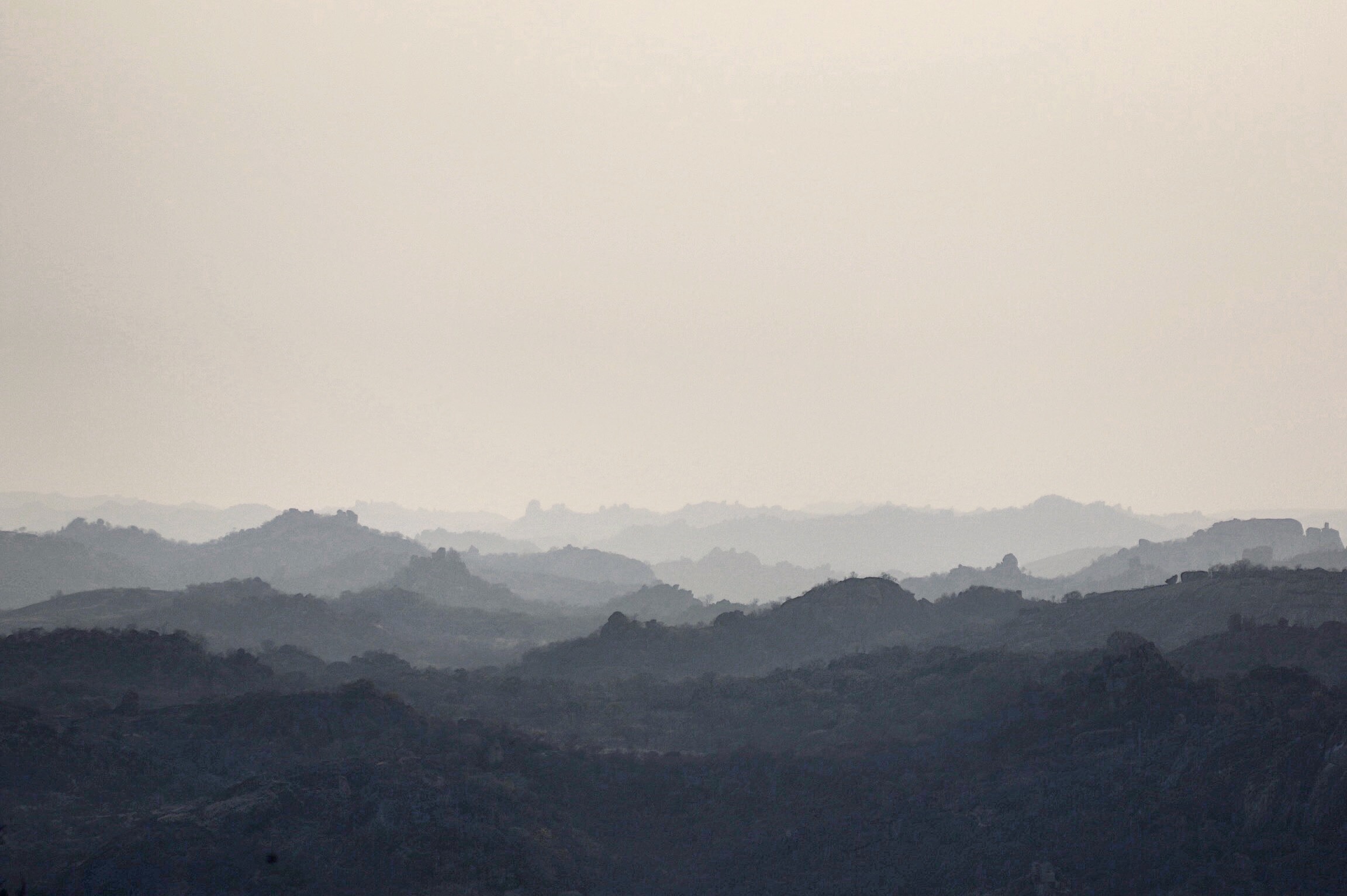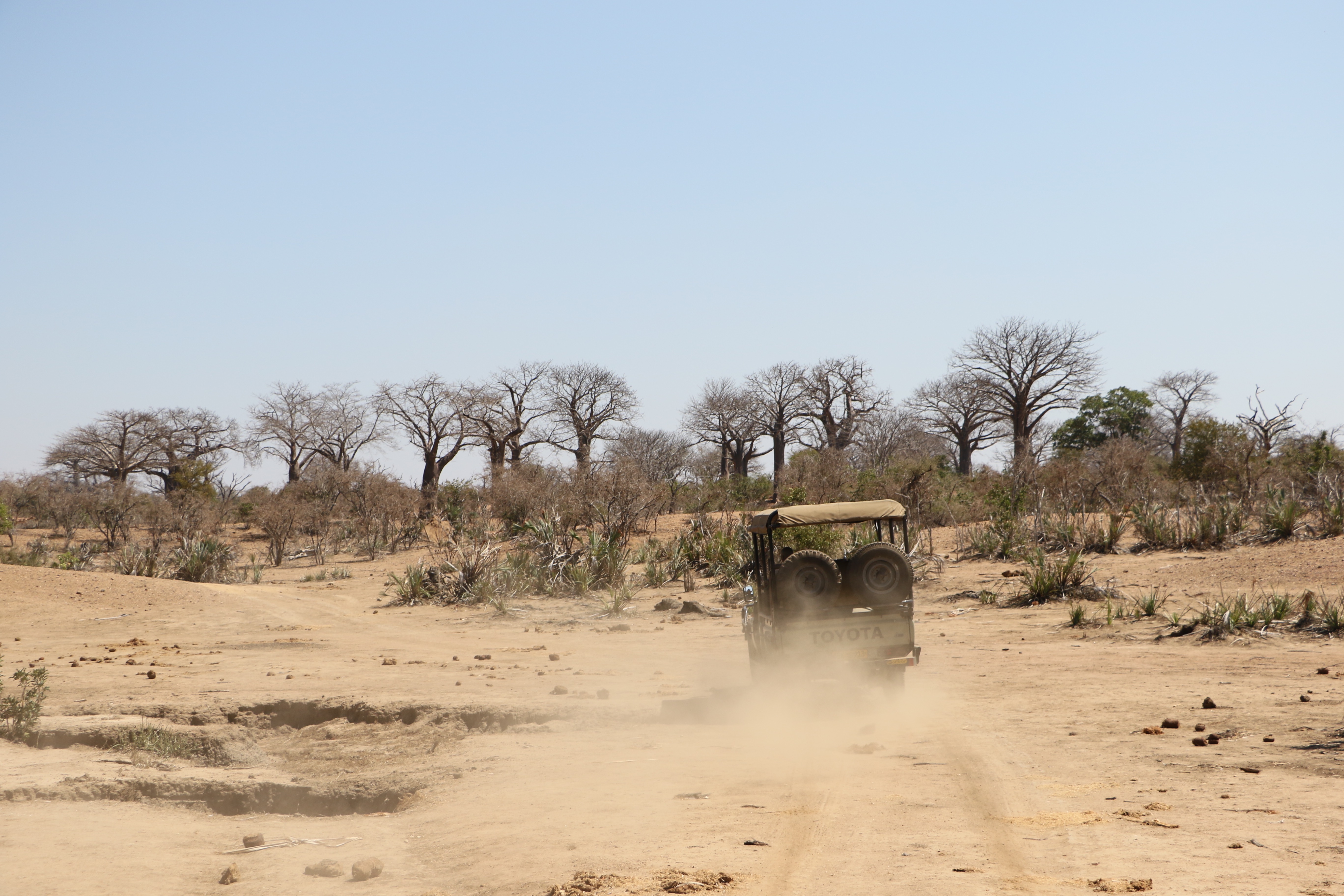Should You Visit Zimbabwe?
It’s incredibly hot, and unreasonably dry in Hwange. As I sit and wipe the September salt from my eyes (in any other month it might be sweat, except the moisture evaporates before it can form), I wonder if a bikini might’ve been more sensible game drive gear, rather than the standard-issue khaki I’ve got on.
Typically, the argument for well-intentioned shades of light green and tan is that it’s practical. It’s sensible for bush walks, the lions won’t charge you (since you can convincingly impersonate a bush) and you can’t blind fellow safari goers with offensively clashing colour combinations. The problem though, is that as soon as your sweaty thighs have been rubbing on a canvas-covered seat for three hours, hey presto, you’re half transparent. Come sundowner time, I’m going to have to stand up and risk my fellow safari-goers thinking I’m incontinent – despite the fact that I’m a good two decades younger than most of them.
These are the superficial thoughts cruising through my pan-fried mind as we come across a breeding herd of elephants on the Dete Vlei Line. My mind is wandering, until these guys who had seemed pretty chilled at first, start forming a circle around a small calf, and then push two three year olds behind one of the bigger ladies in the herd. The matriarch stares at us, measures our composure and assesses the potential threat we pose. To be fair, they’re just as hot and bothered as I am, probably even more so. It’s been a long, dry winter, which is now heating up tremendously as the summer months approach. The bush is bare, there’s very little food, and the rain required to grow a larder large enough to feed 40,000 elephants is still at least a month off.
“These guys are under stress at the moment’ our guide “Zimbo” explains. Officially, we could put this down to another long and stressful dry season. Unofficially, Zimbabwe’s government have been separating the youngest members of Hwange’s breeding herds from their families and rounding them up into bomas where they’ll be housed before being shipped off to Chinese zoos, ‘the government says it’s restocking Chizarira National Park,” Zimbo says, but we soon find out they’re only capturing the youngest members of Hwange’s herds. This is not standard policy if you plan to re-stock another park with dwindling numbers of elephants. You just don’t leave behind the adults who’d need to school their young in the art of bush survival against a new and unknown terrain.
If you’ve ever spent more than a few minutes with a wild elephant, you’ll know how intelligent they are and how strongly they cling to their social structures. To an elephant, family is more important than anything else. Not only that, but elephants are intuitive enough to know when they’re under threat. From the second we pulled up, these guys were busy determining whether we meant to take their young or not.
Suddenly, the dilemma of my sweaty chaffing and temporary discomfort pales into the background. I’m left staring a serious conservation issue in the face – one that polarises people into different camps of opinion about whether or not to travel to Zimbabwe. This is an issue that requires more than “likes” and “dislikes” on social media, and Zimbabwe’s tourism industry is thoroughly aware of it. Not only that, but Zimbabwe’s operators are passionate about the fight, and actively seeking out conservation-minded solutions – if only they had more tourism dollars to do it.
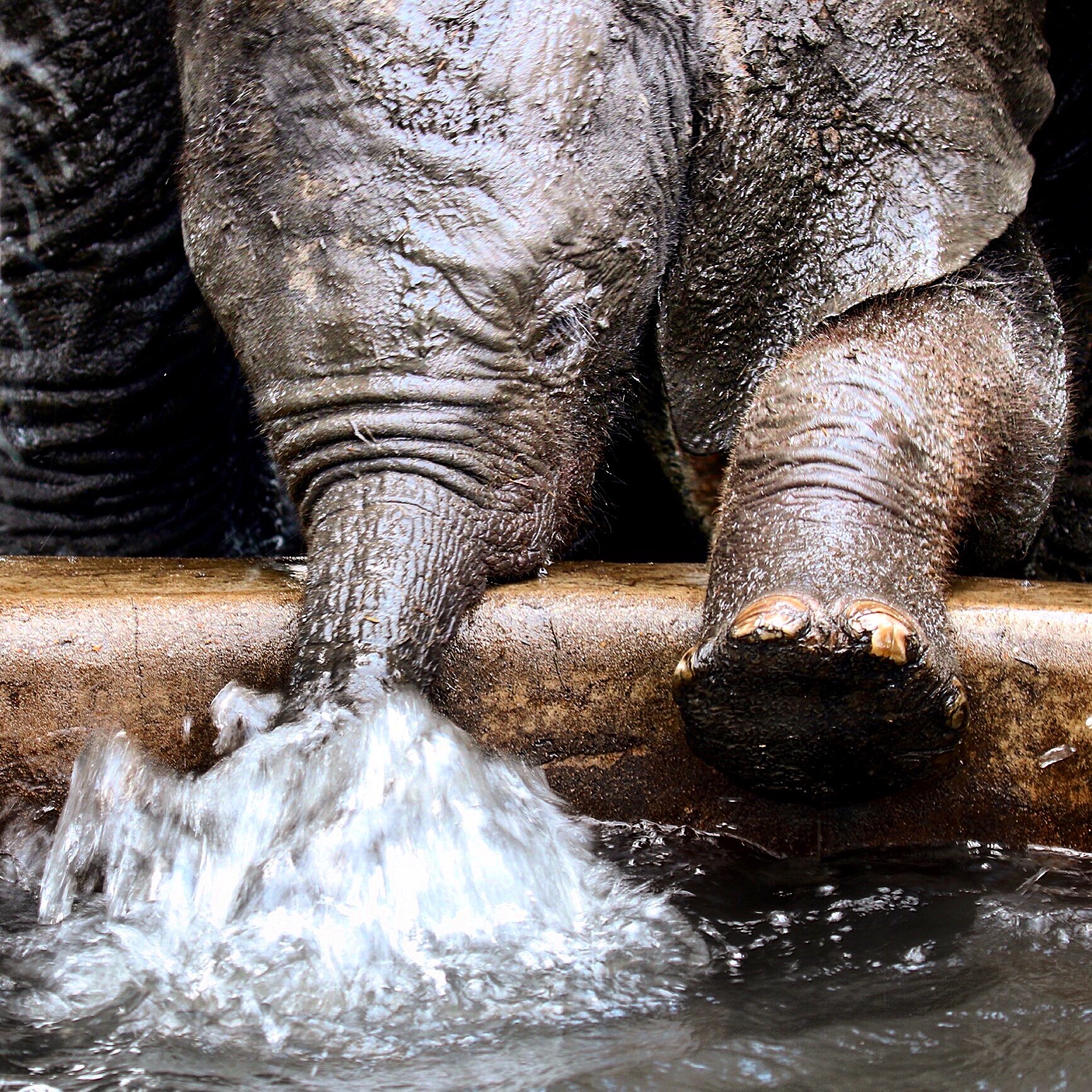
One of Hwange’s elephant calfs makes short work of a lodge swimming pool’s water during the dry season this October.
THE MUGABE EFFECT
Everybody loves a baddie. Ask around, and you’ll quickly find Mugabe is the kind of guy people love to hate. Bob’s talent for misappropriating public funds may not out-match that of South Africa’s Zuma, nor might his brand of tyranny overshadow Russia’s Putin, but he’s certainly had the benefit of a few more decades to hone his reputation, as well as to develop a hefty anti-following.
Thanks to Bob’s surly disposition, and his refusal to govern Zimbabwe by usual democratic methods, there are many travellers and tour operators who feel a moral duty to discourage travel to Zimbabwe. On the surface, the motivation to do this seems noble – starve the guy of cash and knock him off his high horse. The problem with this approach is that it ignores two very significant factors.
#1: MUGABE DOESN’T NEED YOUR MONEY
He gets enough from the exorbitant taxes imposed on his citizens and the decades of foreign aid he’s already whittled away into bank accounts abroad. Mugabe’s pension fund is well and truly established, despite his lack of intention to ever really retire. A lack of income from tourism will not be the motivating factor that prompts old Bob to secede.

Mugabe might be a menace, but his antics are transparent enough that most Zimbabweans can get the best kind of humour out of a bad situation
#2: ZIMBABWE NEEDS YOU
Of all the places I’ve travelled in Africa (and I’ve been to 21 of her countries – which is not all of them, but it’s enough) I’ve never met more committed and passionate conservationists than what I’ve found within Zimbabwe.
Zim’s lot are a tight-knit bunch, who for many years have drawn together under dire circumstances, made a plan with whatever they’ve got to hand and often used nothing more than sheer bloody-mindedness to protect their natural resources against an alarming lack of support from their own government.
Zimbabwe’s tourism operators have taken on the task of grading and maintaining roads, both for anti-poaching patrols, as well as to establish game drive networks. They pump waterholes during the dry months to keep wildlife sustained and to prevent populations of already threatened species diminishing even further. Zimbabwe’s tourism operators use significant chunks of their income to feed, educate and employ people from villages bordered by wildlife areas, in an effort (which has been shown to work) to curb subsistence poaching.
Ask any Zimbabwean operator and you’ll find that the battle is not just hard-won, it’s also funded by tourism dollars alone. Without the much-needed cash injection from tourism, waterholes would run dry – killing wildlife, safari camps would go abandoned – opening up tracts of land to unchecked poaching, and Zimbabwe’s natural resources, as well as it’s people, would face an even more uncertain future.
With the help of tourism dollars, Zimbabwe’s safari operators are able to help fill the void left by a negligent government. If you want to have the greatest possible impact on Zimbabwe, then visit – and empower its people to achieve even more, in spite of the man up top.
THE GUIDING IS UNBEATABLE
Until a couple of months ago, if you’d asked me how I might react to standing in front of two lionesses on foot, I’d tell you I’d love to do it, but I’d anticipate feeling a little bit shaky about it. Add to this a big male lion that would be SOMEWHERE around, but we wouldn’t be sure QUITE where, until he grumbled from the bush behind me, and I’d be happy to guess that it would be brown trousers time. Somehow though, when faced with the situation in reality – that’s not how it ended up playing out.
Earlier in my safari with Singita Pamushana (in an under-appreciated corner of Zimbabwe called Malilangwe) our guide Mark had introduced us to his tried and true method for fitting in with the wildlife. “I talk to them, ok? You might think it’s weird, but for me, it works. The trick is never to sneak up on a lion. Always let him know you’re there. I’ve been doing this for years and the guys here (he was talking about the wildlife) are used to my strange ways. Just bear with me.”
And so it was, that I found myself in the middle of a casual chat, when I would’ve expected to feel a cold sweat coming on instead. “It’s OK big boy. It’s alright.’ Mark says ‘We’re going. Don’t worry. We didn’t see you there. We’re just going to go now, ok?’ then, as our lion continues rumbling, flicking his tail back and forth as if Mark has just made a pass at his lady friends, he instructs us ‘ok, we’re going to leave him now, he’s a bit grumpy, just follow my lead.” Despite the theatrics, Mark had made such light work of the situation that I didn’t even skip a heartbeat. In some ways it was a little disappointing not to feel the expected rush of adrenaline, but in reality, it was also a pleasure not to have to deal with the extra laundry.
This is the talent of Zimbabwe’s guides. They spend years and years training under a system so rigorous that it’s gained a kind of notoriety. Ask any experienced guide whether they’d like to sit Zim’s test and it’s almost guaranteed that the idea will give them a kind of buttock-clenching anxiety. Guides in Zim are expected to know all sorts of everything, from biology, astrology and geology, to exceptional hospitality skills. Ever had a guide climb over the top of you, into the back of the vehicle, so he can pour everyone gin & tonics at sunset without having to drive away from an impressive lion sighting? I have, and it only would’ve happened in Zimbabwe (kudos for this trick go to Albert of African Bush Camps).
In Zimbabwe, you’ll learn the personal stories of the wildlife you encounter, including everyone’s names and what their family trees look like. It’s exactly this in-depth level of guiding that drew such attention to the plight of Cecil the lion, famously shot in Hwange a year and a half ago. Cecil’s story drew such ire because he was well-known. People who visited the park knew his story intimately because of the guides who shared it with enthusiasm. Cecil lived a soap-opera life of tenuous coalitions and love affairs, producing a very tangled family tree that the park’s guides keenly traced and continuously re-told, as if taking the proverbial skeletons out of their own closet. By the time Cecil was shot, he’d been made famous only through the enthusiasm of Zimbabwe’s guides. The conservation plight highlighted by Cecil is real, but were it not for the commitment and passion of Zimbabwe’s conservation heroes, it would’ve gone largely untold.
AND, ZIMBABWE IS OPENING UP
While Zimbabwe has had some pretty quiet years since hyperinflation, the number of visitors to the country (particularly Hwange and Victoria Falls) have picked up tremendously in the past few years. New camps are opening up, providing even more options for different travellers on different budgets, from honeymooners to adventurers to families. Zimbabwe has a wealth of contrasting landscapes to explore, from the dry grasslands of Hwange to the mountain-dominated backdrop of Mana Pools, and the ever-impressive Victoria Falls, which keeps change as its one constant, throughout all the seasons.
For the intrepid explorer, Zimbabwe offers so much more than a safari – it’s the history in its UNESCO world heritage sites – from the balancing rocks of Matopos to the medieval ruins of Great Zimbabwe. It’s the rugged landscapes ready for hiking in the Eastern Highlands, the baobab-filled villages that’ll fill your view in the rear-view mirror, the gritty city scene of Harare and the first lightning storms of the year rolling out towards your houseboat across the open waters of Lake Kariba.
Best of all, even in high season, you’ll still find you’ll have most of Zimbabwe completely to yourself. Surprisingly, the masses still don’t seem to have realized what Zimbabwe has to offer – and, if nothing else, you’ll take home a better lesson in conservation and a more comprehensive understanding of the challenges our planet faces than what you’d get in any other country having a much easier time of it.
